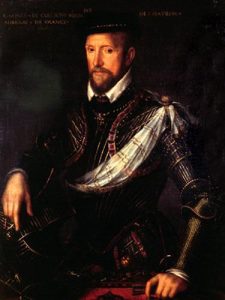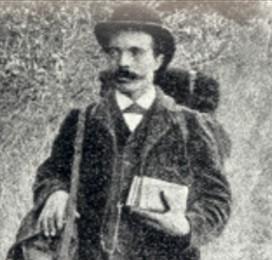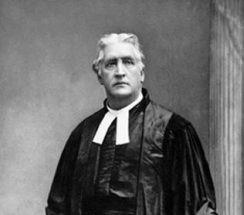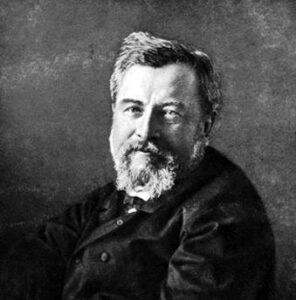Early years
Eugène Bersier was born in 1831 in Morges (the Swiss Canton of Vaud). His father was from the Canton de Vaud, his mother was part British and part Vaudoise.
He spent his early years in Geneva and at the age of 17, he went to the USA for 2 years as a boarding-school housemaster.
He came back to read theology at the Oratoire (Geneva School of Divinity close to the Revival movement). After graduating, he travelled to Germany in1854, and then went to Paris to complete his education. In Paris he attended the Taitbout Chapel, a non-conformist chapel, a landmark of the Parisian Revival movement.
There he met the Hollard family and became engaged to Marie Hollard whom he married in 1855. They were to have five children.
His first pastoral appointment was in the Faubourg Saint Antoine as evangelist among the working class inhabitants of the area. Later he helped his uncle, Victor de Pressensé, run the numerous protestant Revival associations.
In 1860 he was called to replace the pastor of the TaitboutChapel on a temporary basis. He was to stay there until1874. He was a well-known and much appreciated preacher. The first of his seven books of sermons was published in 1863.
Founding of the Evangelical Church of l'Etoile
In 1866, Mr. Bersier moved to the countryside, in Porte Maillot, because of his children’s health. He chaired evening meetings in a classroom in Neuilly. Later the meetings were transferred to the avenue de la Grande Armée where, in 1868, the Chapel of l’Etoile was opened as an annex to the Taitbout Chapel. The Etoile community gradually became independent and came to be known as the Evangelical Church of l’Etoile.
The neo-gothic architecture of the church built in the same avenue and the new liturgy imagined by Mr. Bersier are a testimony to his creative ability.
In 1872 he attended the synod of the Reformed Churches as delegate of the non-conformist Churches and wrote the account of this important synod.
In 1874 he left the non-conformist Church to join the Reformed Churches. The Etoile Protestant Churchdid likewise in 1877.
The Paris Vocational School for Girls was founded the same year. It was situated next to the Church of l’Etoile, where its successor, the Association Méromédia, is still located.
Mr. Bersier died in 1889, at the age of 58, at the summit of his career.
He was a man of peace, bent on unity. He sought to re-establish the unity of a divided Reformed Church. He was open-minded, and did not hesitate in keeping Auguste Sabatier as head of the Sunday school at the Church of l’Etoile, even though he did not fully share the latter’s theological opinions.
He had a great passion for the history of Protestantism. As vice-president of the S.H.P.F. Société d’Histoire du Protestantisme Français (French Protestantism HistoricalSociety), he gave some notable lectures in 1885 for the bi-centenary of the Révocation de l’Edit de Nantes.
He was fascinated by the personality of Coligny and imagined the latter’s memorial which was to be inaugurated in 1889, next to the Oratoire Protestant Church, in the rue de Rivoli.





